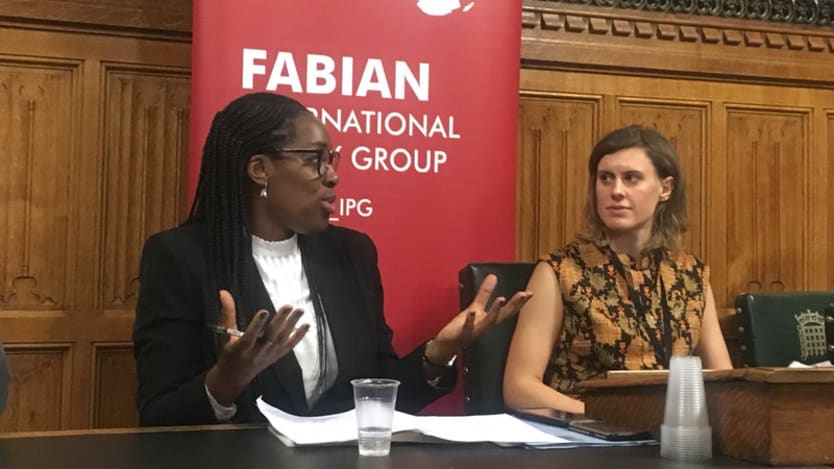NGOs must improve safeguards on sexual harassment, says DFID shadow minister

LONDON — The U.K. shadow secretary of state for international development, Kate Osamor, called on aid organizations to think beyond “whistleblowing” policies and put in place measures that are “fit for purpose” in order to tackle sexual assault and exploitation within the sector.
Her comments come after a British newspaper revealed that the number of “safeguarding allegations” being handled by Oxfam, including cases of sexual harassment and exploitation, nearly quadrupled in recent years, with seven of its country directors accused of safeguarding breaches.
Speaking during an event on the future of development organized by the Fabian Society think tank and held at the House of Commons earlier this week, Osamor said she hoped the media attention the subject has received in recent weeks would inspire change within the sector.
“Hopefully this [exposure] will make sure that Oxfam and other charities put a lot more processes in place, because this is unacceptable,” she said, while also pointing out that sexual harassment is a major problem in other sectors, including the political sphere. Westminster is currently being rocked by a number of sexual offense allegations against MPs and others.
Oxfam says the rising number of reports it is handling are the result of improved safeguarding measures that make it easier for victims to report abuse. The charity has set up a “whistleblowing” helpline, as well as a dedicated safeguarding team to handle sexual assault and exploitation cases. However, in an interview with Devex, Oxfam Executive Director Winnie Byanyima also acknowledged that far more needs to be done.
Osamor, who was elected to the opposition Labour Party last year and who also serves as shadow minister for women and equalities, said that whisteblowing policies can be ineffective. She urged aid organizations to introduce additional measures, and to make sure they are working.
“Most people know that if you whistleblow, you’re gone … [and] that should not be the case, but that happens more and more,” she said, adding that organizations should therefore “keep looking” at their processes and make sure “they are fit for purpose.”
Osamor also called for people across all sectors to be “much more vigilant” and to “call out” instances of abuse when they see them.
“If we see it, we must call it out,” she said, adding that in many cases there were “people who saw it and knew about it and just told the person to be quiet.”
Advocacy groups say that issues such as sexual harassment and assault, sexism, and homophobia are pervasive within the development sector but heavily underreported.
However, the issue has gained more attention in recent years, thanks in part to the work of two pioneering NGOs — Report the Abuse and the Humanitarian Women’s Network — which have both gathered anonymous data from mostly female aid workers that indicates high rates of harassment and abuse within the sector, as Devex has reported.
The Inter-Agency Standing Committee at the United Nations has now set up a taskforce to overhaul the way that U.N. agencies and international NGOs deal with sexual harassment and abuse of staff.
Read more international development news online, and subscribe to The Development Newswire to receive the latest from the world’s leading donors and decision-makers — emailed to you free every business day.
Read more Devex coverage:
▶ Oxfam chief addresses sexual harassment claims
▶ Opinion: Humanitarian agencies are not exempt from #MeToo. Here's how they should respond
▶ LGBT, female aid workers at risk of sexual assault, report finds
▶ Sexual assault and harassment in the aid sector: Survivor stories
▶ Sexual violence against female aid workers: How organizations can tackle it
Search for articles
Most Read
- 1
- 2
- 3
- 4
- 5


